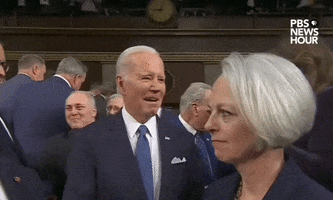mynameisbond
Esteemed Member
- Messages
- 710
I'll take door #2, Monty.We’re talking about a guy who has developed an “economic policy” of tariffs on everything will eliminate the budget deficit and allow him to virtually eliminate income taxes, so, no, he doesn’t get it at all OR he gets it but doesn’t care because his supporters don’t get it.
Tariffs can be dangerous. They contributed to the Great Depression. They are a restraint on foreign trade and the free market system. IOW, they are anti-capitalist. Adam Smith is rolling in his grave right now.
Last edited:




